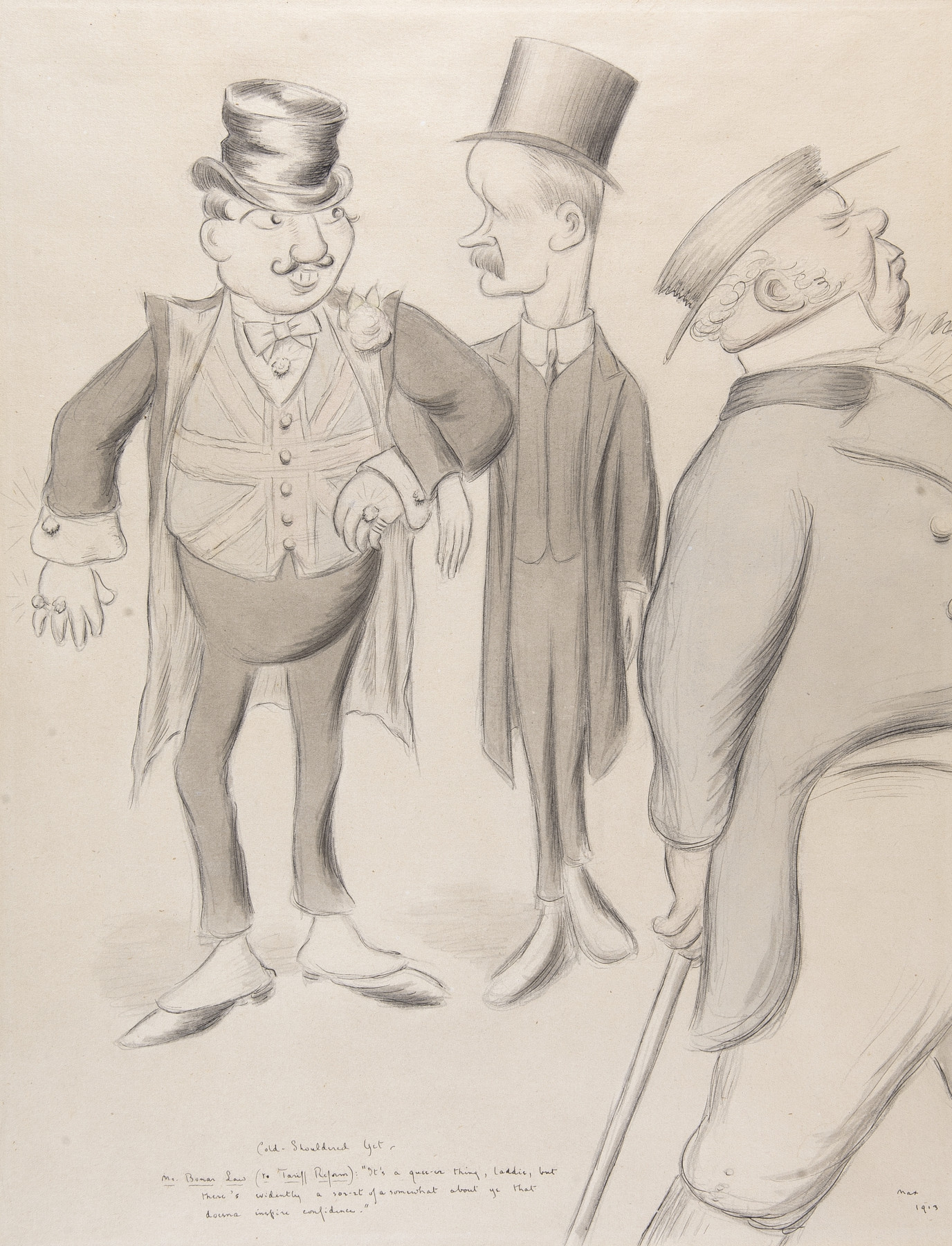
(click image to enlarge)
Cold-Shouldered Yet
In December 1911, Andrew Bonar Law became Leader of the Conservative Party, following the resignation of Arthur Balfour the previous month. His rise through the ranks of the party was largely due to his stance on the issue of tariff reform – the taxation of goods imported into Britain – which had grown out of a need to cover costs from the Second Boer War (1899-1902). His first major speech on the matter in April 1902 was well received and earned him the position of Parliamentary Secretary to the Board of Trade in July 1902. The Conservative Party became increasingly divided between the ‘Free Fooders’ – those who supported free trade – and tariff reformers. The rift forced Balfour to resign in December 1905 and, with the Conservatives in opposition, Bonar Law became the principal spokesman for tariff reform in the shadow cabinet. His business experience and skill as a clear and concise speaker on economics cemented his importance to the party and, though the Conservatives lost the General Election of 1910, led to his becoming Leader of the Party.
However, by the start of 1913, the ongoing debate on tariff reform threatened to end Bonar Law’s leadership prematurely. Heading into the 1910 General Election, the Conservatives had promised to submit tariff reform to a referendum, which became known as ‘Bonar Law’s Proposal’. In November 1912, the Conservatives withdrew this pledge, claiming that the government’s failure to submit Home Rule to a Referendum rendered their own pledge null and void. This angered sections of the party, and after weeks of receiving negative letters about the change, Law outlined that he would not be averse to a return to the original policy, but it would require his resignation. In January 1913, with Bonar Law threatening his resignation if dissenting party members did not fall in line, a compromise over the tariff reform policy was agreed ensuring that he remained as Leader.
In Beerbohm’s cartoon, Bonar Law can be seen arm in arm with Tariff Reform, as he was for much of his career. This suggests the way in which the issue had destabilised not only his own position as leader, but the party as a whole.